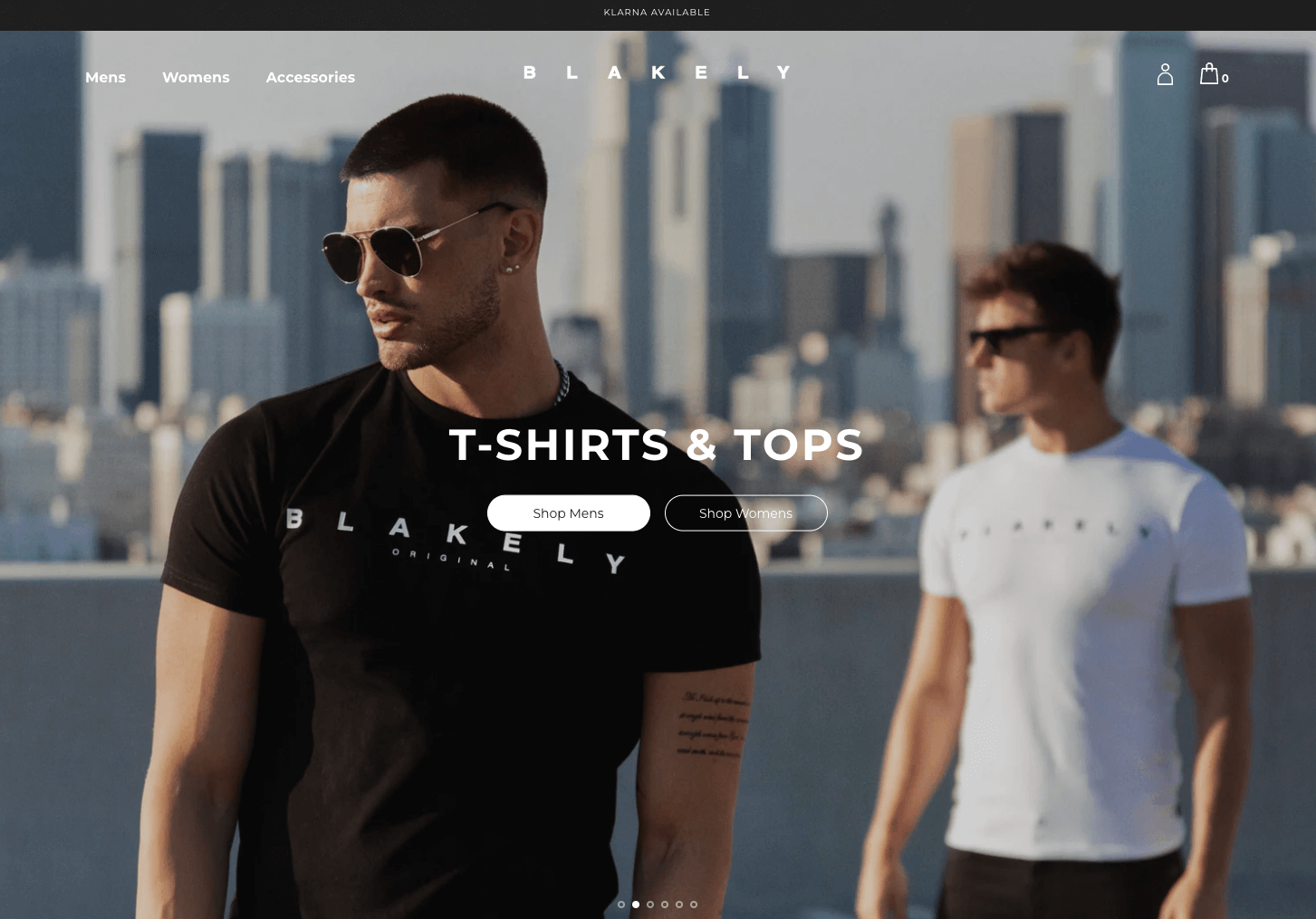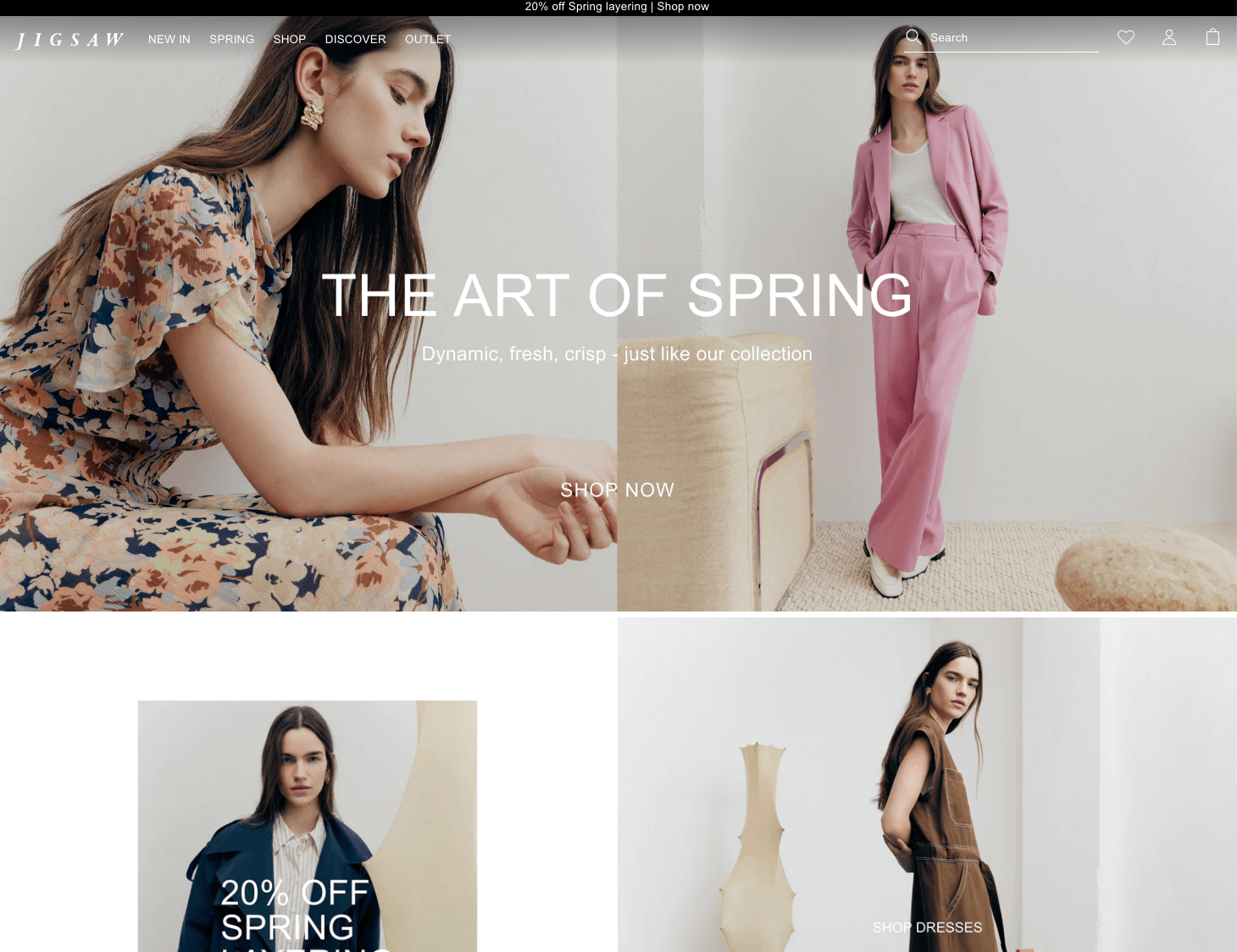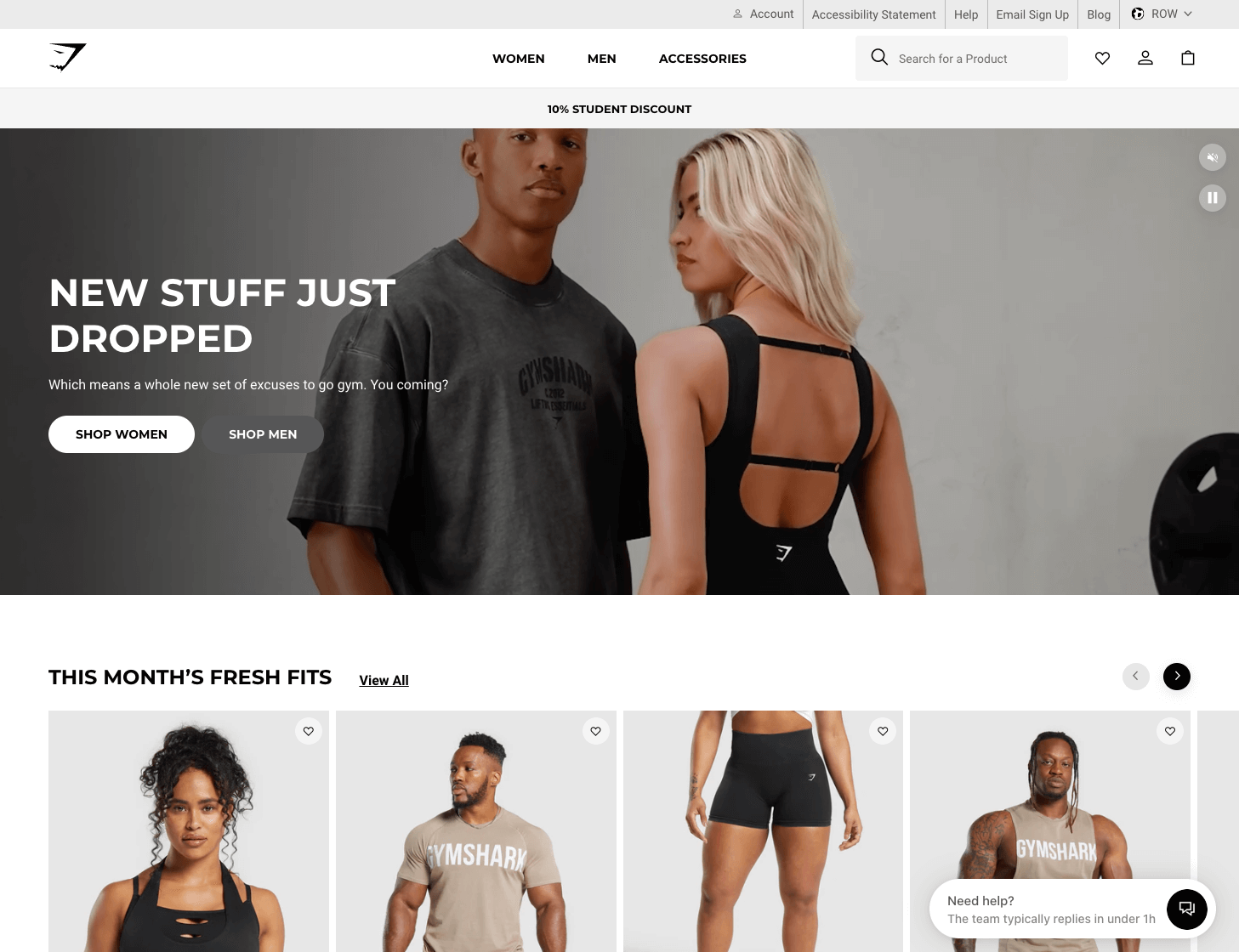Wholesale B2B Shopify: The Ultimate Guide To Boosting Your Business in UK (2024)
 April 04, 2024
April 04, 2024 Shopify, a comprehensive ecommerce platform, is transforming the way businesses operate in the digital space, facilitating both direct-to-consumer (DTC) and business-to-business (B2B) sales with unprecedented efficiency. By offering the ability to sell online, in-person, and across international channels, Shopify is streamlining operations for industries as varied as beauty and cosmetics to home furnishing, not least within the United Kingdom, a key market for ecommerce innovation. With the forecast that 80% of B2B purchases will transition to digital platforms by 2025, the shift towards e-commerce platforms, particularly for wholesale B2B Shopify operations, is not just imminent but necessary.
As businesses eye the burgeoning B2B ecommerce market, understanding how to leverage Shopify for wholesale operations becomes crucial. This article explores the ultimate guide to boosting your business in the UK through Wholesale B2B Shopify, delving into Shopify's B2B ecosystem, setting up your channel, customizing pricing, integrating specific features, and providing actionable insights through case studies, including how Mgroup Shopify Agency successfully integrated Wholesale B2B into Shopify for Resellers. With a practical and actionable lens, we’ll navigate through the intricacies of enhancing B2B Shopify sales, ensuring your venture is well-placed to capitalize on digital opportunities in 2024 and beyond.
Understanding Wholesale B2B Shopify Ecosystem
Shopify's B2B ecosystem is designed with a suite of specific features to streamline online business-to-business transactions, ensuring a seamless and efficient experience for both sellers and buyers. Notable features include:
- Customizable Pricing Rules: Allows businesses to set different pricing for various customer groups, enabling volume discounts and tailored pricing strategies to accommodate the diverse needs of B2B customers.
- Customer Accounts with Credit Terms: Offers the flexibility for businesses to manage customer accounts effectively, providing options like net payment terms which facilitate smoother financial transactions and credit management.
- Company Profiles: Businesses can create detailed profiles on Shopify, which simplifies order management, payments, and shipping. This feature enhances customer service and potentially increases sales by making the purchasing process more organized and accessible.
Additionally, Shopify's B2B logic and integration capabilities offer:
- Customizable B2B Logic: Tailor your Shopify store to meet specific B2B needs, including custom pricing rules, account-specific shipping rates, and management of customer groups, ensuring a personalized approach to B2B ecommerce.
- Integration with Third-Party Apps: New B2B APIs facilitate enhanced experiences and connectivity with essential business tools, streamlining operations and adding valuable functionality to your Shopify B2B platform.
Shopify Plus elevates the B2B ecommerce experience by providing:
- Advanced Features for Shopify Plus Users: Including omnichannel commerce, international ecommerce, and headless commerce options. These features are designed to manage complexity, automate processes, and integrate systems, offering a comprehensive solution for high-volume B2B transactions.
In conclusion, Shopify's B2B ecosystem is a powerful tool for businesses looking to expand or streamline their online B2B sales. With customizable pricing, detailed company profiles, and advanced integration capabilities, Shopify provides a solid foundation for businesses to thrive in the competitive B2B market.
Setting Up Your Wholesale Channel on Shopify
To set up a wholesale channel on Shopify in the UK for 2024, businesses should follow a structured approach that ensures their store is tailored to meet the needs of B2B customers effectively. Here's a step-by-step guide:
Create a New Shopify Store:
- Navigate to Shopify.com and initiate the sign-up process for a new account. This is the foundational step where you lay the groundwork for your B2B ecommerce platform 4.
Set Up Your Wholesale Channel:
- Within your Shopify admin panel, proceed to Settings > Sales Channels > Wholesale.
- Click on 'Add channel' and adhere to the on-screen instructions to activate your wholesale channel. This step is critical as it enables the wholesale functionality within your Shopify store, allowing you to cater specifically to B2B transactions.
Customize Your Wholesale Settings:
- Adjust settings related to pricing, payment terms, and shipping options. Tailoring these settings is essential to accommodate the unique needs of your wholesale customers, such as offering volume discounts or extended payment terms.
Invite Wholesale Customers:
- Add customers to your store and assign them to designated wholesale pricing tiers. This segmentation allows for personalized pricing strategies, enhancing the purchasing experience for your B2B clients.
Manage Your Wholesale Orders:
- Keep track of and fulfill wholesale orders directly from your Shopify admin. Efficient order management ensures timely delivery and high satisfaction levels among your wholesale clients.
By meticulously following these steps, businesses can establish a robust Wholesale B2B Shopify channel that is optimized for the UK market. This setup not only streamlines operations but also positions your business to capitalize on the growing trend of digital B2B transactions.
Customizing Pricing and Products for B2B Customers
Customizing pricing and products for B2B customers on Wholesale B2B Shopify involves several strategic steps to ensure a tailored and efficient purchasing experience. Here's a breakdown of how to leverage Shopify's features and third-party apps for this purpose:
Custom Pricing Catalogs and Price Lists:
- Shopify enables the creation of custom pricing catalogs for specific B2B clients or segments, allowing for personalized pricing strategies.
- Businesses can also utilize the wholesale channel to create different price lists for various types of customers, ensuring pricing flexibility and competitiveness.
Order Customization and Volume Discounts:
- The 'draft orders' feature is instrumental in creating custom orders with specific prices for B2B customers, accommodating unique deals and discounts.
- For advanced pricing strategies, integration with B2B apps like TradeGecko and Handshake is recommended. These apps offer features such as tiered pricing and minimum order quantities, crucial for managing bulk orders and volume discounts efficiently.
Enhanced Pricing and Ordering Apps:
- 'Request a Quote + Hide Price' app: Adds a quotation request form and hides prices for B2B stores, encouraging direct negotiation with customers.
- 'SparkLayer B2B & Wholesale' app: Integrates powerful B2B wholesale ordering capabilities into existing stores, streamlining the ordering process.
- 'Wholesale Pricing Now WOD' app: Offers B2B wholesale pricing with order forms, eliminating the need for a second store and simplifying the purchasing experience.
- 'Custom Price Calculator' app: Provides a live price calculator for custom options and bulk products, allowing customers to see adjusted prices in real-time.
These steps and tools are designed to enhance the B2B purchasing experience on Shopify, enabling businesses to offer competitive pricing, customize orders, and manage bulk transactions efficiently. By leveraging Shopify's built-in features and integrating with specialized B2B apps, businesses can create a streamlined and personalized shopping experience for their wholesale customers.
Integrating B2B Specific Features and Third-Party Apps
Integrating B2B specific features and third-party apps into your Wholesale B2B Shopify store can significantly enhance its functionality and user experience. Here's a breakdown of some vital integrations and their benefits:
Essential B2B Features and Apps:
- Silk Commerce: Offers comprehensive solutions for digital transformation and global expansion, essential for B2B operations aiming for scalability.
- AIOD - All-In-One Discount: Supports various discount models like Bundle, Quantity discounts, and BOGO offers, crucial for attracting B2B customers with competitive pricing strategies.
- BSS: B2B Subscriptions: Allows creation and management of subscription-based products, catering to the recurring needs of B2B customers.
Shipping and Payment Customizations:
- ShipZip: Shipping & Delivery: Simplifies shipping by allowing custom rules based on product, location, and customer tags, enhancing the logistics aspect of B2B transactions.
- Payfy: Payment Rules: Hides or reveals payment methods based on various criteria such as cart total or customer type, offering a tailored checkout experience for B2B customers.
Enhancing Customer Interaction and Order Management:
- ECF: Contact Form Builder: Embeds a contact form with Captcha and file upload options, improving the communication channel between businesses and their B2B clients.
- B2B Wholesale Club and Wholesale Pricing Now WOD: Both designed for wholesale businesses, these apps offer features like tiered pricing, customer groups, and customizable catalogs, directly addressing the needs of B2B customers for personalized pricing and bulk orders.
By integrating these specific features and third-party apps, Wholesale B2B Shopify store owners can significantly improve their store's appeal to B2B customers. These integrations not only streamline operations but also offer a more customized and efficient shopping experience, ultimately leading to increased satisfaction and loyalty among B2B clients.
Case Studies of Successful Shopify B2B Stores
Exploring the success of B2B Shopify stores offers invaluable insights into the potential of the platform. Among the notable case studies:
Blakely Clothing Co. Shopify Store
- Outcome: Witnessed an impressive 85% increase in conversions, a 13% rise in average order value, and a 49% boost in overall global sales after migrating to Shopify Plus.
- Strategy: Leveraged the platform's robust features to streamline their operations, enhance their online presence, and provide a seamless shopping experience for both B2B and B2C segments.
Jigsaw Shopify Store
- Outcome: Achieved a 10% increase in conversion rates and a £2 million sales boost within five months of integrating custom-built apps with Shopify Flow and Matrixify.
- Strategy: Utilized Shopify's flexible ecosystem to scale operations, improve inventory management, and automate workflows, thereby enhancing efficiency and customer engagement.
Gymshark Shopify Store
- Outcome: After a challenging Black Friday event on Magento, Gymshark's transition to Shopify Plus was a pivotal move that led to a valuation of $1.4 billion and the opening of a flagship store in London.
- Strategy: Embraced Shopify Plus for its scalability, reliability during high-traffic events, and comprehensive tools that support global expansion and omnichannel strategies.
These examples underscore the transformative impact of Shopify's B2B capabilities. By adopting the platform, businesses can significantly enhance their operational efficiency, scalability, and customer engagement, positioning themselves for sustained growth and success in the competitive B2B landscape.
Conclusion
Throughout this article, we have explored the transformative capabilities of Wholesale B2B Shopify as an invaluable tool for businesses looking to harness the digital evolution of the B2B marketplace in the UK. From setting up your channel for greater functionality and customization to integrating essential third-party apps that enhance user experience, Shopify proves to be a critical asset for businesses aiming to flourish in the competitive digital landscape. The case studies discussed, including the significant contribution of Mgroup Shopify Agency in successfully integrating Wholesale B2B into Shopify for Resellers, underscore the platform's capacity to boost operational efficiency and drive sales growth.
As we look toward the future, it's clear that the shift towards digital B2B transactions is not just a trend but a fundamental change in how businesses interact and transact. Shopify's robust ecosystem offers a versatile and scalable solution that can cater to the unique demands of B2B operations while providing a seamless experience for both sellers and buyers. By leveraging the insights and strategies highlighted in this guide, businesses are well-positioned to capitalize on the opportunities presented by digital transformation, setting a course for innovation, growth, and success in the ever-evolving world of B2B ecommerce.
FAQs
Q: How to Start Selling on Shopify in the UK? What are the steps to begin selling on Shopify in the UK?
A: Launching your Shopify store in the UK involves a straightforward process:
- Sign up for Shopify's free trial.
- Choose the sales channels you wish to utilize.
- Configure your payment settings.
- Create collection pages.
- Add products you intend to sell.
- Finalize setting up your online store.
- Conduct a test order before officially going live.
Q: What does selling wholesale mean?
A: Selling wholesale refers to the practice where a wholesaler distributes products in large quantities to various outlets or retailers at a lower price. This is possible because buying in bulk reduces handling time and costs, allowing for these savings to be passed on.
Q: Is it possible to conduct B2B sales on Shopify?
A: Yes, but the B2B sales feature is exclusively available to Shopify Plus plan members. Shopify Plus offers a comprehensive suite of B2B features that enable seamless business-to-business transactions on the platform, eliminating the need for third-party applications or workarounds. For details on Shopify Plus pricing, contacting Shopify directly is advised.
Q: What exactly is a B2B wholesale business?
A: A B2B (business-to-business) wholesale business involves selling goods or services in bulk to other businesses instead of individual consumers. This model focuses on offering products at discounted rates to retailers, distributors, or other entities for the purpose of resale or for their internal use.











